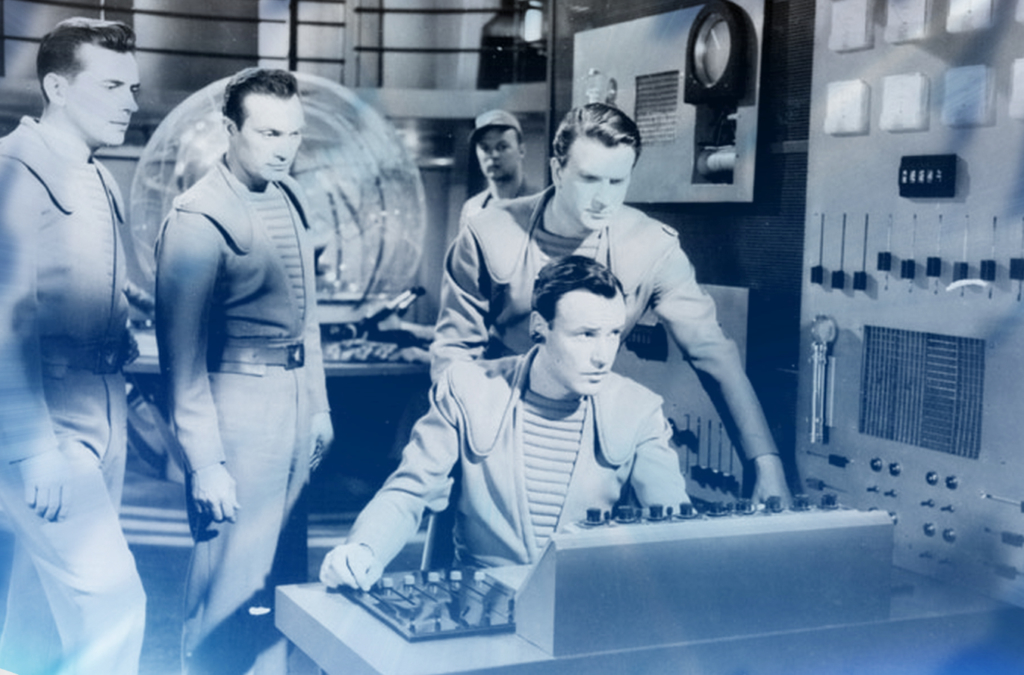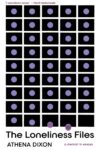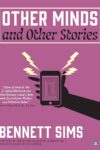I teach literature for a living. It’s my job to be smart, to recognize smartness, to promote the growth of smartness — that’s what we do in the humanities, anyway.
The college classroom is a place where smartness ought to be allowed to flourish, where smartness serves as an ideal to strive for. As educators, we seek to reward “smartness” and encourage its growth. In moments of grandiosity, between grumbling about depleted toner cartridges and malfunctioning grade submission systems, we see ourselves in some kind of ancient lineage, a fireman’s line in which we stand at the front, receiving buckets over-sloshing with the stuff of knowledge to dump over our students’ heads.
But, of course, we don’t have a monopoly on smartness, and there is no ancient lineage. Smartness, as we’ve come to understand it, is less a thing imparted to others than a quality people possess, a capacity for rational calculation, cognitive function, call it what you want. And we, as a culture, have come to seek smartness in all things: in impressive pets, versatile telephones, remotely activated light switches, romantic partners, and apt pupils.
Smartness is a matter of value as much as it is a matter of capacity. We readers of think pieces and smart takes have come to prize it — it impresses us. Nevertheless, and against my own best interests, I am here to convince you that we ought to be skeptical of smartness, to stop treating it as an unalloyed good or an end in itself. I am not going to address what I suspect are really the two most corrosive sites of our obsession with smartness, Wall Street and Silicon Valley. Rather I want to think about the ways that our aspirations for our own smartness have been represented, the ways in which a few selectively chosen sites of smartness in literature and film get at something troubling in our concept of smartness writ large. Smartness — cognitive enhancement, as transhumanist thinkers like Ray Kurzweil are always saying — will eventually turn us into something other than what we are. For transhumanists, the end of humanity promises utopia rather than apocalypse, a world in which technocratic efficiency functions at the molecular level.
It hasn’t always been this way. Our investment in our own intelligence used to come freighted with the fear that we were innovating ourselves into annihilation — the “imagination of disaster,” as Susan Sontag phrased it. It seems to me that we have learned, or been taught, to forget about knowledge’s destructive valences. While dystopian fiction, film, and television is now as popular as it’s ever been, we’ve surgically amputated our fears about societal collapse from our individual (and individualistic) ambitions.
***
Once, during a discussion of Freud’s The Interpretation of Dreams, it became apparent that my students were not having it. None of it. Why, I finally asked them, were they so resistant to Freud, when many of the other, equally difficult thinkers we studied in the class had not seemed nearly so objectionable? Because Freud has been proven wrong, one of them answered, so none of this stuff matters. After trying to explain why “wrong” was not quite an accurate term in this case, it became apparent that they not only thought Freud’s theories were improbable, but that the man himself was a little thick. Freud was a genius! I sputtered. Maybe back then, one of them replied, but people are smarter now. We know more about the human brain. So you think that the average person now is smarter than Freud? I asked. Yes, of course, the student replied.
The student’s error, I thought, came in mistaking the adjustments and revisions that attend knowledge formation with the cognitive improvement of the people making those adjustments. In that view, past wrongness is a defect in intelligence and reasoning rather than an imperfect set of facts or simply a different framework for analysis. If only we were around back then, we’d get things right. We know more, and we are therefore better, smarter.
***
Smartness is a seductive goal, because it seems attainable. When I was a child I hoped I would turn out to be a genius. But apparently you’ve got genius or you don’t, and if I had it you probably would have heard of me by now. As I grew older, I strove for moments of what I thought you could call brilliance — whether I ever attained any is at best debatable. In retrospect, the moments when I seemed to exceed my capacity feel like flukes, accidents of phrasing and gesture that I claimed ownership over, though I can hardly say I invented them. Now a day in which I can claim to have been competent seems like a win for me, for humanity. The transcendent glory of genius, the phosphorescent glow of brilliance, those are now sources of anxiety, signs of lack. Smartness is more comfortable. We can always get smarter, just a little. This belief allows us to distinguish ourselves from semi-literate cave dwellers like Sigmund Freud.
***
Is it really appropriate to talk about my past with this tone of wistful regret? I sound like I’m on my deathbed here; I’m barely past my third decade. But that is one of the demands of the teleology of smartness: the requirement to think of the past as rickety, riddled with regrettable accidents that could have been avoided, had you only been a bit better, quicker, smarter.
***
I want to write an essay that claims the desire for smartness sits at the center of Western literature, in the core of Eve’s apple. In that essay, I would cite the Prometheus myth, with its theft of fire, and Paradise Lost. But the ambitions and agonies of Prometheus and Eve have little to do with the relative modesty of smartness. Knowledge is incandescent, a transgression, Satanic and heroic. (Milton’s Satan: “And what are Gods that Man may not become / As they, participating God-like food?”) Smartness is a business plan for the self. “Knowledge” is ancient; “smartness” is contemporary.
And knowledge, if it needs to be said, has unpredictable consequences: expulsion from the garden, getting your liver picked out by an eagle. And who knows what “knowledge” really signifies anyway — it’s a vast, intimidating term. Smartness seems smaller — I.Q.-type intelligence rather than some ineffable wisdom. Smartness is quantifiable, measurable. Perhaps that’s why the cultural meaning of intelligence has so recently shifted from a knowledge-type threat to a smartness-type virtue. As a period in which “intelligence” — meaning both “smarts” and “surveillance” — was tethered to fears about man-made, technologically-driven apocalypse,the Cold War seems important here. But again: too big, too grand. Am I smart enough to engage it as a whole? No, I prefer to approach it obliquely.
***
Daniel Keyes’s Flowers for Algernon, published as a short story in 1959 and expanded into a novel in 1966, takes the form of a diary kept by Charlie, a sweet, hard-working, mentally disabled man transformed into a genius by a set of “treatments” invented by two psychologists, Dr. Strauss and Dr. Nemur. The novel reflects its era’s faith in and suspicion of intelligence, toward the notion of smartness as a quantifiable and measurable quality. Writing early on in his treatments, Charlie recounts a conversation about I.Q. he has with his doctors: “I’m not sure what I.Q. is anyway. Prof. Nemur said it was something that measured how intelligent you were — like a scale in the drugstore weighs pounds. But Dr. Strauss had a big argument with him and said an I.Q. didn’t weigh intelligence at all. He said I.Q. showed how much intelligence you could get, like the numbers on the outside of a measuring cup. You still had to fill the cup with stuff.” By the time Flowers for Algernon was published, the question wasn’t whether or not you could quantify intelligence but how best to do it. Nemur and Strauss both believe there’s a way to measure intelligence, and therefore believe that intelligence is a quality that people possess, and therefore believe there is a way to enhance and, as we see in the novel, degrade it.
The idea of quantifiable intelligence undergirds the entire book. After achieving stratospheric heights of intelligence, Charlie’s smarts begin to fade. His intelligence dwindles, though he retains enough of it to document not only the loss of what he knew but how he feels about losing it: “I recall how wonderful I thought Milton was. When I picked up Paradise Lost I could only remember it was about Adam and Eve and the Tree of Knowledge, but now I couldn’t make sense of it.” Intelligence rises and falls like mercury in a thermometer.
In many ways, Flowers for Algernon is a Cold War document, one that encodes the desperate race for instrumental knowledge and technological superiority as a tragic bildungsroman. As Charlie gets smarter, he grows angry. Unable to square his massive I.Q. with his emotional inexperience, he has knowledge of the world but cannot cope with it. As Dr. Strauss tells him, “You’ve got a superb mind now, intelligence that can’t really be calculated, more knowledge by now than most people pick up in a long lifetime. But you’re lopsided. You see things. But you haven’t developed understanding, or — I have to use the word — tolerance.” That word — “tolerance” — suggests that Charlie’s lopsidedness reflects a cultural imbalance particular to the American 1960s. The U.S., newly ascendant, was struggling to square an explosion of technical innovation spurred by the Cold War with a set of untenable social tensions at home — the Civil Rights struggle, along with the general sea-change in sensibilities that marked the 1960s, was evidence that while we came to think of intelligence as an enhanceable quality, most of the other faculties remained a mystery.
Regardless of its socio-political resonances, I confess that I find the end of Flowers for Algernon almost unbearably sad. I try to avoid thinking about it.
***
There is more than a little of Shakespeare’s Caliban in Charlie, a little bit of The Tempest in Flowers for Algernon. Not Caliban’s anti-colonial grudge against the deposed Milanese duke Prospero, but the uncontrollable angst awakened in him by knowledge. “You taught me language,” rages Caliban at Prospero and Miranda, “and my profit on’t / Is, I know how to curse. The red plague rid you / For learning me your language!” Charlie’s love interest in Flowers for Algernon is his teacher. Prospero alleges that, prior to the play’s action, Caliban tried to rape his teacher, Miranda. (Miranda: “I pitied thee / Took pains to make thee speak, taught thee each hour / One thing or other.”) Caliban remains exemplary as a figure whose collision with knowledge and reason render him skeptical of the fruits of reason. Scholars like to talk about him as a figure derived from early modern reports of “savages” living in the New World, but Caliban’s rejection of the knowledge foisted on him by foreign autocrats reminds me of those aspects of European literature and culture — and later American popular culture — that remained skeptical of knowledge and wary of its consequences.
***
The Tempest seems to revel in the power of Prospero’s knowledge to overwhelm whatever forces set themselves against it, to trap, manipulate, and expose his adversaries. Yet the presence of Caliban suggests the deeply unsettling effects that knowledge produces. Again, “knowledge” here seems like something huge, abstract, metaphysical in its scope. I want to get away from it without turning my back on it, as one does when leaving the presence of a queen or a bear. One way to creep away from it is to look at a film that inverts The Tempest’s concern with early modern knowledge into a concern with modern smartness: the 1956 sci-fi film classic Forbidden Planet.
If Flowers for Algernon merely dips its toe into psychoanalysis, Forbidden Planet plunges in head-first. Attempting to recover a mission lost on an isolated planet, Commander John J. Adams and his crew arrive, only to be warned off by Dr. Morbius and his daughter Altaira, the two surviving members of the mission. But while trying to leave, the crew’s ship is destroyed by a mysterious force, one seemingly impervious to their weapons. Waiting around the planet, Morbius (improbably, a philologist) eventually discloses to Adams that he has been studying the Krell, an ancient civilization that lived on the planet a thousand centuries earlier. Aiding this study has been a mysterious bit of Krell technology, one that amplifies the intelligence of its user. It has a meter attached to it, and the user can crank it higher or lower, depending on how much they want their intelligence turned up. Morbius has enhanced his own intelligence, but warns Adams that “man is unfit to receive such power, such knowledge.” Robby the Robot, an invention of Morbius’s and later of Lost in Space fame, synthesizes immense amounts of booze for the bored, alcoholic spacemen. As Adams and Altaira find themselves drawn to each other romantically, the mysterious force, which takes the shape of a giant spectral Yeti, increases the ferocity of its attacks on the stranded crew. One of Adams’s men, entranced by the power of Krell technology, attempts to turn it all the way up and fries his brain. (Morbius: ““The fool! The meddling idiot! As though his ape brain could contain the secrets of the Krell!”)
Eventually Morbius reveals that the purpose of the Krell technology is to make manifest the thoughts of the user. But while this enabled the Krell to build a great society, it also led to their downfall. In making real the thoughts of the Krell, Morbius explains in a monologue that introduces the spacemen to Freudian theory, their technology also unleashed the mayhem contained in their Ids. Finally, Adams puts together what the brilliant, Krell-enhanced Dr. Morbius cannot (or will not): the unstoppable monster assaulting their crew is in fact a manifestation of Morbius’s own Id, the libidinous rage roiling in him at the thought of outsiders interfering with his relationship to Altaira.
A product of the confluence of the 1950s obsessions with space travel (the space race with the Soviets began the year before its release) and psychoanalysis, the exploration of the inner and outer limits of the human domain, Forbidden Planet suggests that enhanced intelligence cannot disaggregate itself from its origins in the unconscious. One of the film’s unavoidable implications, of course, is that Morbius desires his own daughter. The sexual rivalry posed by the arrival on the planet of a bunch of space-weary men proves too much for Morbius, and his enhanced intelligence proves more effective at sublimating his unconscious drives into reality than anything else.
***
Smartness, the Cold War taught us, offers no respite from our own irrationality. Our smartness is one of our primary enemies. Oppenheimer’s “Now, I am become Death”; Dr. Strangelove’s Precious Bodily Fluids and Nazi hands. To get smarter, we warned ourselves, is to become innovators of our own destruction, overly capable of accessing desires and impulses better left unexplored.
***
This is all getting very gloomy. Am I simply re-fetishizing the very notion of smartness I want to de-fetishize? I am not a very able demystifier. If one of my students handed me this essay, I might tell him it seemed like he was cherry picking his examples to suit his thesis, that his analysis was, on the whole, impressionistic.
***
For all its B movie camp, its clumsy psychoanalytic framework, its 1950s ubermenschy jawlines, stilted dialogue, and frail female non-character, there’s something about Forbidden Planet that remains compelling. It embodies Walter Benjamin’s (now tired) observation that “There is no document of civilization which is not at the same time a document of barbarism.” One kind of cultural attitude toward intelligence enhancement during the Cold War suggested that our brains might doom us rather than save us — that the key to saving humanity, or at least not letting things get any worse, was to constrain rather than liberate the mind. Certainly, an air of paleoconservative technophobia hangs about such an idea.
In the world of science fiction film, the last notable work that was truly committed to this paradigm was Lawnmower Man (1992), which evokes Flowers for Algernon and pummels the viewer with Garden of Eden imagery. Though released a year after the dissolution of the Soviet Union, the film merges skepticism toward smartness with early internet anxiety. After Dr. Lawrence Angelo uses drugs and virtual reality training to enhance the intelligence of Jobe — a mentally-disabled laborer — all hell breaks loose. “You would like to be smarter, wouldn’t you?” he asks Jobe. Yes, he would. But Jobe turns psychotic under the strain of his new superhuman intelligence and the addition of an “aggression factor” into his treatments. Thinking himself a savior, he attempts to take over the world by uploading his consciousness to the internet. He promises that he will announce the dawn of a new era in which he gains control of the world’s networks by making every phone on Earth ring at once. The film ends with the sound of thousands of phones ringing.
Lawnmower Man, in essence, reinvents the anxieties voiced by Forbidden Planet for the internet age. Jobe sees himself as a savior, but the film views Jobe’s ideas about ushering in a new era more than skeptically — salvation seems sinister and a Christ complex is simply part of Jobe’s psychosis. The techno-utopian fantasy of eternal life obtained through uploaded consciousness is here reimagined as a narcissistic apocalypse. Jobe’s desire for smartness, science’s desire to make humans infinitely smart, our belief that we have the ability and the moral obligation to enhance cognition — all of these bring about the possible end of humanity.
***
“You would like to be smarter, wouldn’t you?” The question and its slightly sinister undertones might well serve as the epigraph to this essay. I would, wouldn’t I? I should, shouldn’t I? To want to be smarter is to enmesh desire and reason, to turn reason into the servant of desire. Wanting and reasoning, desiring and thinking: perhaps I have inadequately parsed these two bodily functions from each other.
***
If Lawnmower Man serves as the belated finale of Cold War skepticism toward intelligence enhancement, our contemporary attitudes toward smartness, at least as expressed by science fiction films, see that skepticism utterly reversed. Faced with the real, or at least apparent, threat of annihilation, smartness looked to some filmmakers and writers like a central cause of our problems rather than a solution to them. Now that daily thoughts of instant armageddon have more or less receded from public consciousness, we seem to be thinking about things differently. We’ve purged catastrophic hubris from the way we manage our desire to be smarter, better, sharper. Two recent films suggest just how strongly we’ve rethought the way we represent intelligence enhancement, and consequently the way we conceptualize our ambitions for humanity.
One is Limitless (2011), the fun, schlocky Bradley Cooper vehicle that seems headed for cult classic status. Eddie Mora is a thoroughly dissipated would-be sci-fi novelist. Eddie cannot finish or start or even really summarize his novel — he’s the laughingstock of even the drunks at his local dive. Wandering the streets in a pathetic haze, he runs into his ex-brother-in-law Vernon, who claims to be a pharmaceutical rep and gives Eddie a sample of an experimental nootropic drug. After taking it, everything seems suddenly clarified. The world is sharper, and the previously impassable barrier between Eddie’s desire and his will falls down. He bangs out 90 pages of his novel in a day, but the effects of the drug wear off after 24 hours. Eddie returns to Vernon to get more of the drug. Someone shows up and murders Vernon, but Eddie grabs the stash and takes off.
After finishing his novel and picking up some languages, Eddie does what comes natural and uses his pharmacologically enhanced analytic powers to make a pile of money on the stock market. He hooks up with businessman Carl Van Loon, helping him engineer a massively complicated deal. But Eddie begins to experience side effects from the drug — blackouts and inexplicable injuries. He meets with his ex-wife Melissa who tells him that she had also been taking the drug but had since weaned herself off of it and now experiences terrible side effects: persistent pain and crippling mental sluggishness. She is unable to hold a job or complete simple tasks, and her life has fallen apart as a result. Eddie also learns of others who have died attempting to withdraw from the drug.
At this point, Limitless seems on course to repeat the Promethean pattern of intelligence enhancement films that came before it: smarts but with a steep price. Yet by the film’s end Eddie has not only bested Van Loon (who turns out not to be such a great guy) and the gang of thugs that have been trying to get to his supply of drugs, but has also, he tells Van Loon, successfully weaned himself off the drug while retaining his mental prowess. Whether that’s just a feint to throw Van Loon off or the truth doesn’t really matter: his life has certainly not fallen apart. He remains sharp, focused, willful. If he, like Melissa, has changed, he’s changed for the better. He runs for political office and, it’s implied, he’ll soon enough ascend to the presidency. It’s a strangely consequence-free ending, with Eddie reaping the rewards of enhanced I.Q. without, seemingly, any sort of complication. Where we would expect to see Eddie forced to choose between intelligence and life, there is only a kind of cognitively-enhanced Horatio Alger story.
For all its momentum, Limitless is a strangely unsatisfying film. It is unsatisfying to the extent that Eddie himself achieves satisfaction. These sorts of stories have taught us that there ought to be some price exacted for the achievement of knowledge we ought not to have. Eddie keeps everything. He stays rich, writes another novel, and he’ll get elected. He learns Chinese and he, as we find out in a scene that channels The Matrix, knows kung-fu. What Eddie achieves, then, isn’t knowledge, but a kind of amplified, calculating intelligence. It’s not that he necessarily knows what we don’t, it’s that he can think faster, perform more calculations. This, it seems to me, is a crucial distinction. Eddie is enhanced — he is not fundamentally different from us, he is just faster than we are, more sure-footed. Eddie’s intelligence, then, seems premised on a kind of cognitive egalitarianism — we are all enhanceable, and therefore in some way the same. It is only a short step from there to see the way that Eddie directs his intelligence — toward acquiring money and political power — as an indication of an ideology of intelligence in Limitless. We all possess the same basic capacities — those who are enhanced get what’s theirs not through gaming the system or taking shortcuts or inherited privilege, but through the means that intelligence provides. I.Q. enhancement, in Limitless and beyond, has become a meritocratic fantasy.
***
I don’t blame Eddie for taking the Limitless drug. I would do the same in his shoes. And I would probably use it to make money though probably not to become a politician, which sounds like a drag.
***
We are all probably experiencing summary fatigue at this point. I will be brief.
***
The other important recent entry in the contemporary imagination of smartnesss is Luc Besson’s Lucy (2014). After getting kidnapped by Taiwanese gangsters and turned into a mule for an experimental party drug CPH4, Lucy gets kicked in the stomach, and massive doses of CPH4 begin leaking into her system. As she absorbs more and more of it, Lucy finds herself possessed of abilities she never had before — enhanced focus, an ability to learn languages, absorb and synthesize massive quantities of data, and, finally, the ability to read minds, see through solids, and manipulate matter, space and time. The film’s beginning intersperses Lucy’s initial struggles with the Taiwanese mob with a lecture by Professor Norman, a biologist (or something) who lectures on the old canard that “humans only use 10% of their brains.” Accordingly, the film is interspersed with title cards announcing Lucy’s ever-increasing access to her own cognitive capacity: 20%, 50%, 75%, and so on. As in Limitless, Lucy begins to go into withdrawal without the drug, literally falling apart in an airplane bathroom. Eventually, searching for more CPH4, Lucy tracks down Norman in Paris and has him aid her in what she perceives will be an evolutionary leap from human to posthuman, informing him that his hypotheses regarding what happens when humans eventually reach 100% cerebral capacity are not far off. Norman obliges while Lucy and dreamy Parisian cop Pierre Del Rio fight off the continuing onslaught of Taiwanese mobsters. At the film’s climax and conclusion, Lucy reaches 100% capacity. She is able to travel back and forth through time, manipulate its flow using swiping and pinching motions familiar to any user of an iPhone — to Lucy, reality becomes just another piece of technology.
Lucy fully exceeds her human capacity in the only way we can imagine: by literally turning herself into a computer. The film’s end sees her transforming herself from a person to a giant, black CPU, and from there to a thumb drive full of the knowledge she believes will help humanity make the leap from species to Singularity. The film’s end evokes and inverts Lawnmower Man’s apocalyptic conclusion: instead of the ominous sound of telephones ringing, Norman receives a text message that simply reads, “I am everywhere.” Unlike, say, David Bowman’s transfiguration into the Star Child at the end of 2001: A Space Odyssey, Lucy’s sublime transformation reimagines the future of humanity as something purely technological, as though our aim was to finally divest ourselves of our clunky, cumbersome bodies and become beings of pure calculation, pure cognition. Where perhaps it attempts to break technology’s monopoly on the way we imagine our own transcendence, Lucy succeeds only in demonstrating that we tend to think of progress, advancement, the future as upgrades in processing power and, finally, the casting off of our bodies as mere encumbrances on our calculating potential. Where once were space babies now are text messages.
Lucy’s dramatic conclusion suggests that we’ve passed from envisioning the end of humanity as armageddon to imagining the end of humanity as Kurzweilian Singularity. No longer something to fear, something to keep us up at night, we strive for it. Our means of achieving our own end is the constant drive to become smarter, to think faster, to calculate perfection. Seemingly less perilous and grandiose than the search for “knowledge,” the apparently modest aims of intelligence enhancement posit smartness as a virtue in and of itself, one that leads inexorably to a better future, one in which we live clean, peaceful lives, preferably on the internet. “Ignorance brings chaos, not knowledge,” says Lucy, “I’ll build a computer and download my knowledge in it.” Whatever knowledge is, you can download it, program it into a machine. Translatable into code, it becomes legible in the language of smartness.
***
In the end, Lucy and Limitless share a certain improbable sense of fulfillment. Their stakes are so high — permanently enhanced intelligence, evolutionary overdrive — and yet our protagonists have little trouble achieving it. They sacrifice almost nothing for what they get. The same could be said of The Tempest, incidentally. Prospero’s plans go off without a hitch. He gets it all — dukedom restored, daughter married to the son of the King of Naples, Caliban defeated.
***
I sound like a luddite, but I do not think I am one. Maybe this is all a reaction formation, an expression of frustrated ambitions, personal inadequacies, and so on. That is possible, though I doubt I can know if it is true. There are certain limitations we all have simply by virtue of being ourselves. In my case, a sort of blind spot obscuring the nature of my own motivations is one of those limitations. I suspect that is a big one for a lot of people. Freud thought so, for what it’s worth. Would gaining access to the nature of those motivations make me a more virtuous person? Or would I simply find something I would rather not see? Would getting smarter help me see it, or would being a smarter person simply make me a better obscurer? How would I even know?
This post may contain affiliate links.








